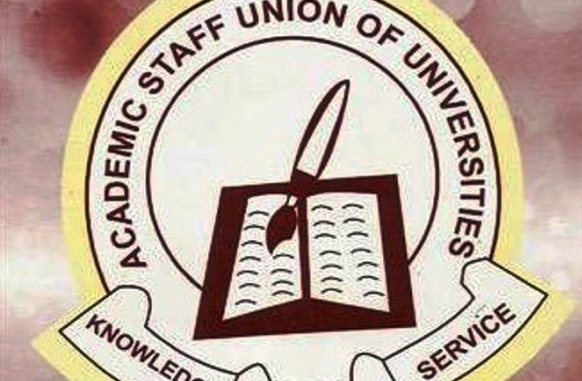Dr. Christopher Piwuna, Chairman, Academic Staff Union of Universities (ASUU), University of Jos chapter, says incessant strikes by the union have been instrumental to the institution’s growth over the years.
“The distractions, frustrations and uncertainties caused by the strikes are actually painful, but I can assure you that the school and the students are always the better for it,” Piwuna told the News Agency of Nigeria (NAN), on Sunday in Jos.
NAN reports that local strikes have become very common in the university and had often led to the loss of complete academic sessions.
Currently, the 2015/2016 session, that should have terminated in July 2016, has been programmed to end in April 2017, owing to another bout of lecturers’ strike that lasted several months.
Students of the school are, however, already apprehensive that even the reviewed academic calendar may suffer yet another review, in view of the interruption caused by ASUU’s on-going one-week nationwide warning strike that started on Wednesday, Nov. 16.
But Piwuna, whose chapter had consistently shut down the university over a myriad of issues with management, claimed that the school owed most of its developmental strides to such strikes.
“Our strikes have ensured the building of new hostels at the Naraguta Campus and the renovation of many others for the comfort and safety of the students.
“The strikes have also forced management to equip laboratories and also secured hazard allowances for those working in them.
“We have also fought and forced management to build many lecture halls which boosted the teaching and learning atmosphere in the school,” he said.
Piwuna said that ASUU had also demonstrated its commitment to boosting quality learning by building a lecture hall with a capacity for 1,000 students.
He described the strikes as “natural and responsible” reactions to a system that had relegated education to the background, and declared that the union shall remain on its feet until education was given the deserved attention.
Piwuna also reacted to statistics showing that the school had lost its mass appeal among candidates seeking univeristy admission, owing to its academic instability.
“I am aware of the reluctance to come to UniJos, but what I want the candidates to know is that the school is better than it was 10 years ago; I challenge them to ask more questions so as to know the gains from the pains of such strikes.
“I also want the general public to know that we are not undermining the system; that we are only fighting to add value to it and make it better by forcing government to live up to its responsibilities.”
He rejected suggestions that ASUU was insensitive and usually selfish as it hardly consider the plight of the students when shutting down the schools.
“It is wrong to suggest that we hardly weigh the consequences of our actions. We always weigh the consequence of every step because we are also affected by the closures.
“A quarter of our members are equally students pursuing Masters or PhD degrees. We also have wives, children or relations that are students. So we are also affected, but we only make sacrifices so that the right thing will be done,” explained.
He expressed regret that governments and university managements hardly take the lecturers serious until they embarked on strikes, and called for attitudinal change from those in authority.
On the major disagreement of the lecturers with the university’s management, he identified the payment of “Earned Academic Allowance” as one area yet unresolved.
“In 2013, the Federal Government released N30 billion to be shared to the universities out of which University of Jos got N1.161 billion, but the management refused to use the template approved for the sharing of the money and opted to pay even those not entitled to it.
“ We also fought and secured hazard allowances for those working in laboratories and handling chemicals, but when the money came to the university, it shared to everyone, leaving very little to those it was meant for.”
He however commended the present management that came on board few months ago, noting that the Vice Chancellor, Prof Istifanus Maimako had started well by meeting with ASUU to work out improved conditions for staff and minimise the number of workers leaving the institution.
Piwuna also commended Maimako’s humility, especially his insistence on wide consultations before taking decisions, saying that such gesture would boost mutual confidence and enhance industrial harmony.
The ASUU chairman, however, advised management to settle the salariess of assistant lecturers and graduate assistants, who were being penalised for failing to obtain Masters Degrees in three years as was usualy required. (NAN)

